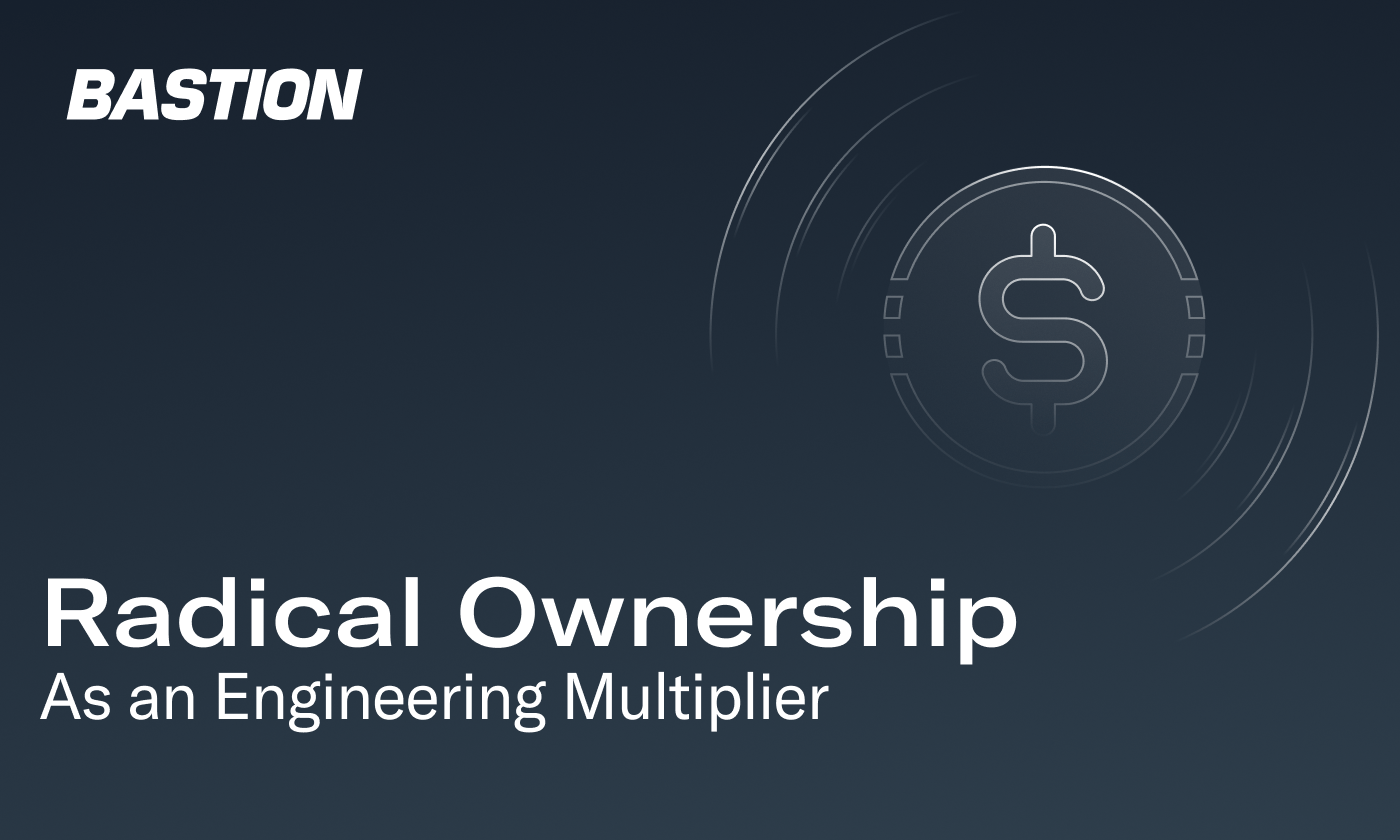
Jameel Al-Aziz taught himself to code at twelve. By the time he graduated from UCLA with a degree in computer science and engineering, he had already logged more practical experience than many of the senior engineers he would later work alongside. Yet he still had to start at the bottom of the ladder.
That experience shaped his view of what really matters in engineering careers. “I don’t believe in seniority purely as a number of years of experience,” says Jameel, now Bastion’s Chief Technology Officer. “I look at what you are capable of doing and how effective you are.”
It’s a philosophy that rejects rigid hierarchy. At Bastion, engineers earn ownership by demonstrating care, skill, and initiative, not by waiting their turn.
Envisioning an Artisan World of Engineering
This vision of engineering, where talent and contribution matter more than years clocked, feels more aligned with the way craftspeople have historically been trained. Think of the traditional apprenticeship models of the artisan world where renowned handicrafters passed down their expertise throughout the generations.
What could happen if companies embraced the artisan concept with engineering? The idea may not be far-fetched. As Chris Dixon noted in The Read Write Own Manifesto, “Software is so expressive that it is better thought of not as engineering, but as an art form . . . The plasticity and flexibility of code offer an immensely rich design space, far closer in the breadth of possibilities to creative activities like sculpting and fiction writing than engineering activities like bridge building.”
How Bastion Engineers Think About Ownership
Jameel’s team doesn’t gate responsibility behind promotions, and leveling is not a restriction on what you can do in the organization. So, if you have a solution that you want to implement, no one is going to tell you not to explore your ideas. Passion can serve as your driving force as you impact the company and influence innovations.
But what happens if an engineer takes ownership of something that just doesn’t work?
“Ownership doesn’t mean that an engineer walks away with a problem and works on it in isolation,” Jameel said. “Instead, it’s like this: I identified a problem. I really care about the problem. I spoke to other people in the company to understand how we should think about the problem. Then I devised and implemented a solution. So, ownership really is driving something forward and getting buy-in from everyone.”
What Freedom of Ownership Looks Like at Bastion
Engineers, by their nature, are problem solvers who enjoy being productively engaged in identifying roadblocks and creating workarounds. When they have control over solving what intrigues them, their enthusiasm can empower them to successfully tackle tough challenges.
Ownership lies at the intersection of autonomy and responsibility, and Jameel describes what that looks like on the Bastion playing field. “We’ve seen junior engineers grow into staff-level contributors in under two years,” he said, “not because they followed a checklist, but because they took ownership of meaningful work and executed at a high level.”
“We want to give everybody an opportunity to lead and spread their wings,” Jameel continues. “We don’t want to get in anyone’s way with the caveat of security. We are a licensed organization, so there are some things we have to lock down.”
Who Thrives in the Bastion Structure
“Lots of teams focus on hierarchy,” Jameel notes. “Here, most people are tech leads, and we give people more reign and less oversight. This probably isn’t great for people who want or need mentorship, but it’s great for self-starters.” For that to work, Bastion gives everyone as much context as possible to perform their jobs.
Fewer layers exist between engineers and customers, too, and it’s by design. In fact, nearly every engineer on the team is connected directly to clients through slack, so they can hear feedback from the source, “When a customer faces an issue, engineers are responsible for addressing that issue and communicating with the customer. If there were more layers, then you’d just be playing a game of telephone.”
In sum, at Bastion, two opposing ideals work in tandem: engineers work with independence and creative freedom while also being closely connected to the team and the end users that embrace our company’s solutions.
Engineers at Bastion don’t come to work every day to check off boxes, Instead, they arrive each day to lead, own work, and drive innovation and change. It’s not a place to coast. If you’re an engineer who is ready to transform the future of stablecoins, here are open positions.
